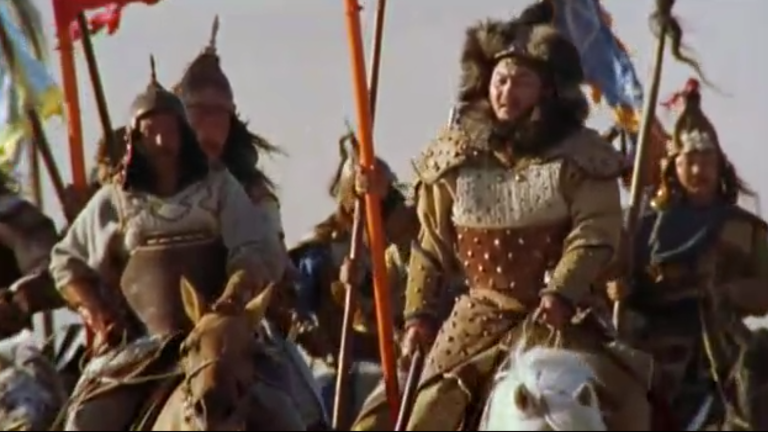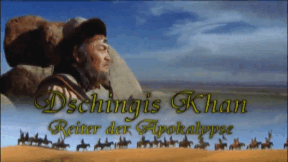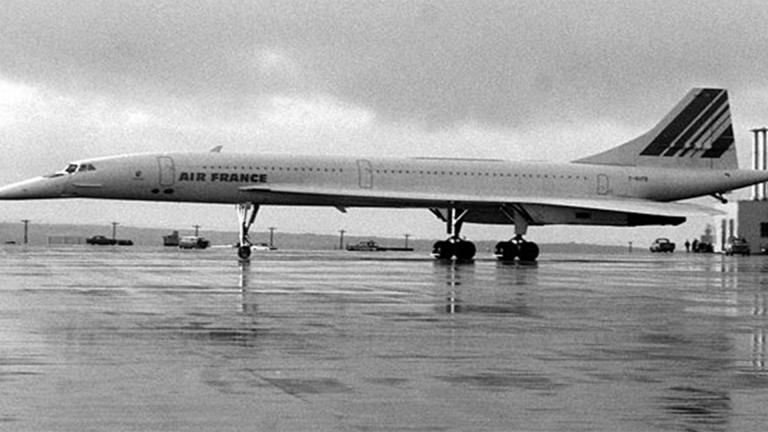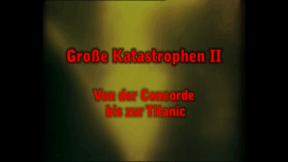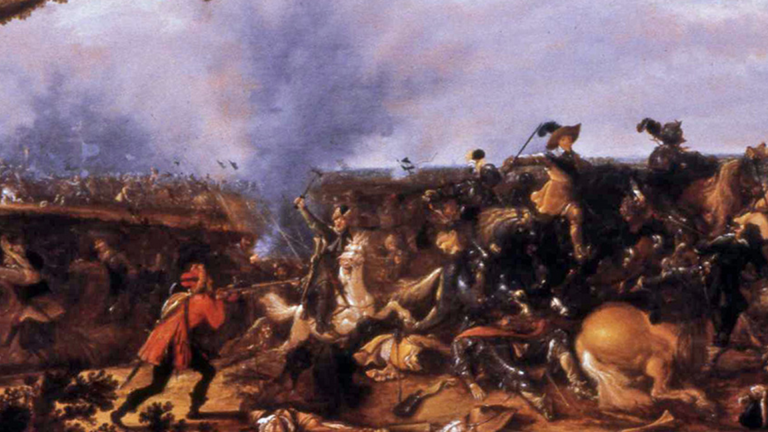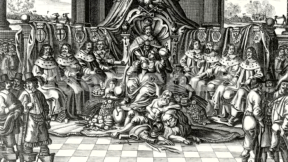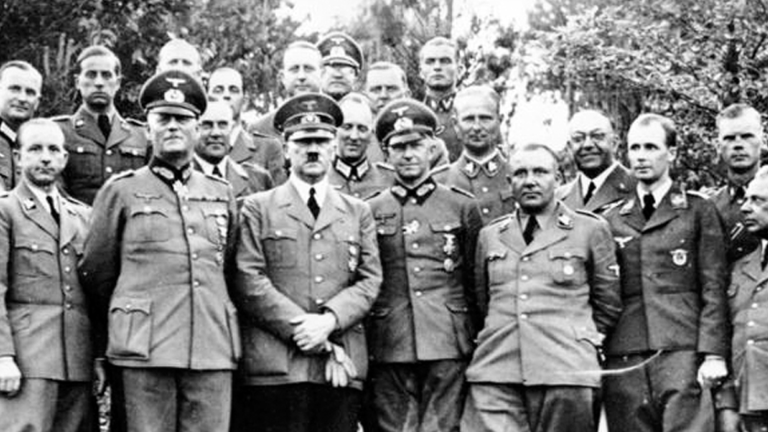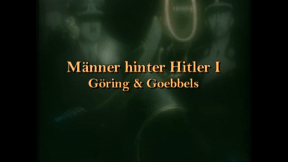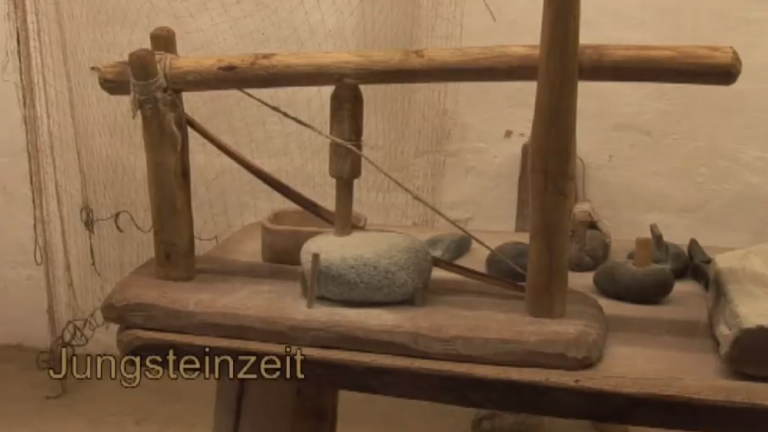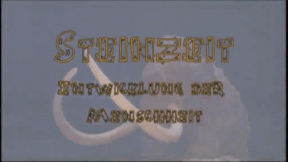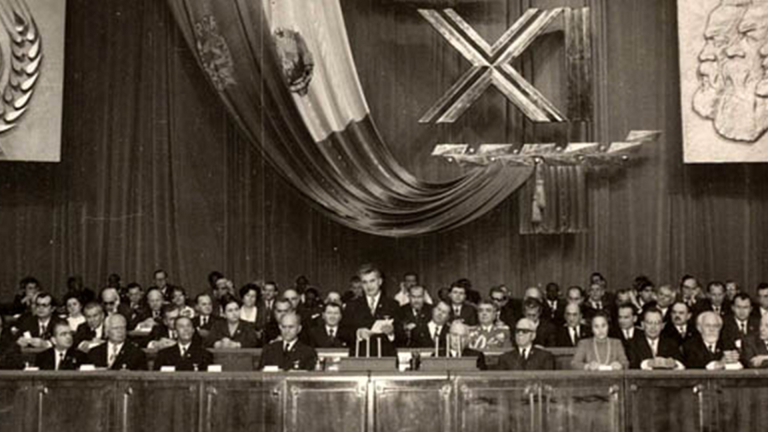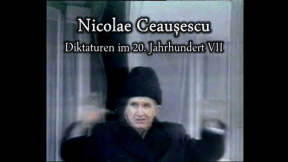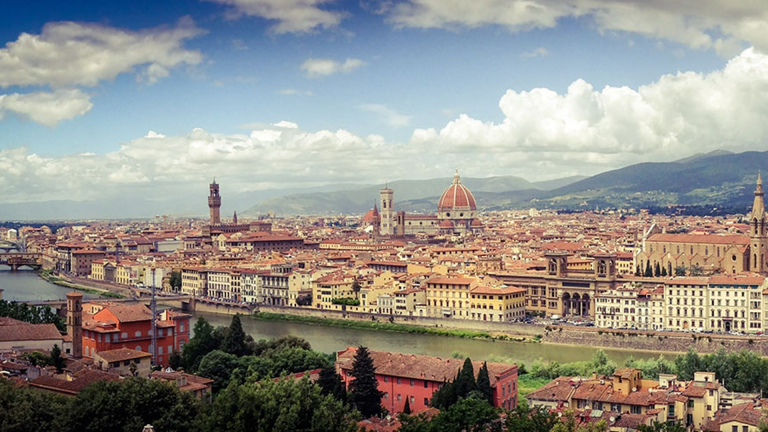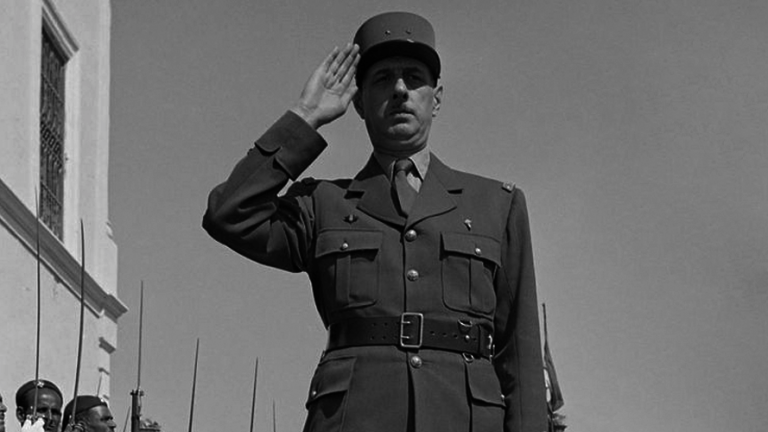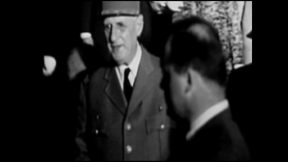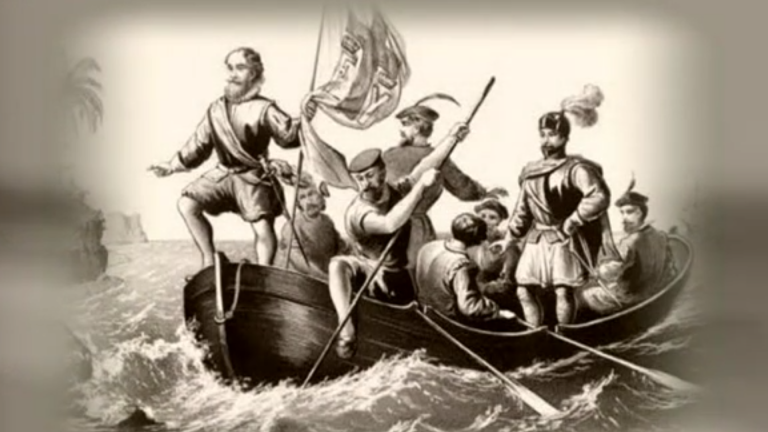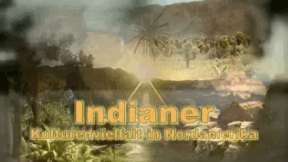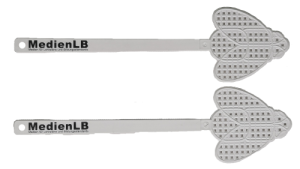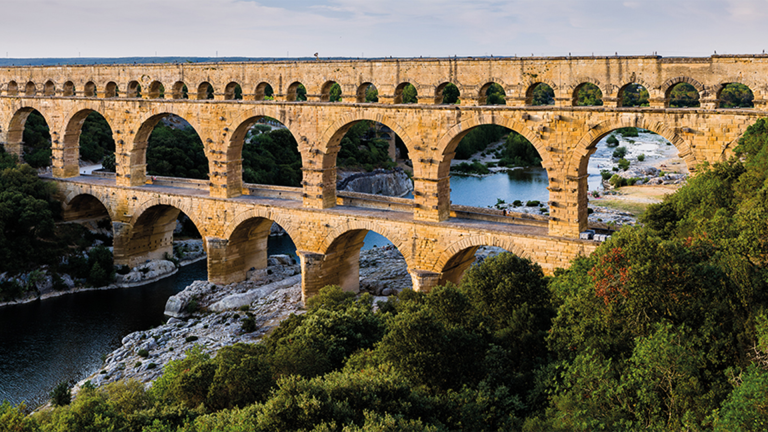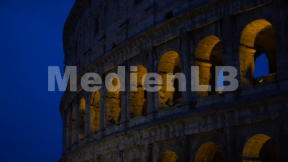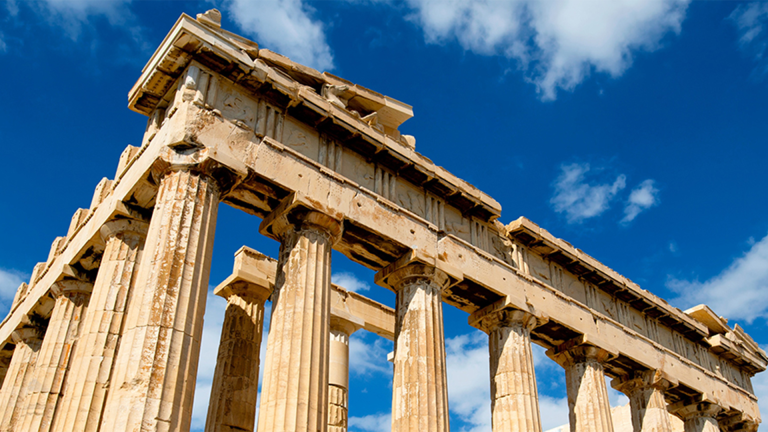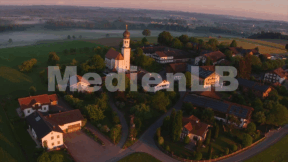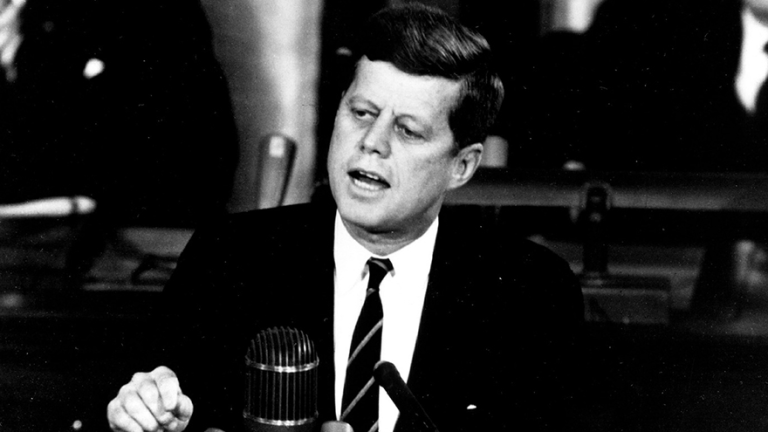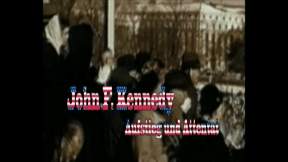Suche:
- # Artistry
- # Biology
- # Chemistry
- # Ecological
- # Economy
- # English
- # Foreign Language
- # Geography
- # German
- # Health
- # History
- # Informatik
- # Latin
- # Mathematics
- # Media Education
- # Music
- # Physics
- # Politics / Civics
- # Preschool
- # Primary School
- # Religion
- # Society
- # Sports
- # Technology
- # Training of Teachers
- # Vocational Education
Genghis Khan
They appeared all of a sudden, as if from nowhere. Wild Mongol hordes on horseback overrun the Asian Steppes and Russian expanses at the beginning of the 13th century. Nobody can hold up their triumphal march. The leader of the Mongols is Genghis Khan, a merciless conqueror and visionary statesman. His myth is still topical today. The myth of Genghis Khan, the “Apocalyptic Horseman”. The film describes the development of the young Temujin to one of the greatest generals in history. Impressive pictures show the live of Genghis Khan from the cradle to the grave. By maps used systematically, his military campaigns are shown and a timeline, which is repeatedly displayed, provides the dates of the conquests. This way, pupils can gain a better understanding of the campaigns and remember the dates better. Interesting bonus material on 13th century Europe and comprehensive accompanying material invite you to cover all aspects of the topic. Thus, history lessons become an impressive experience.
Learn moreGreat Disasters II
A disaster occurs when the balance inherent in a particular phenomenon is disturbed. This may happen either because a new powerful force comes into play that triggers the disaster or because a small – even tiny – causal factor interferes in a situation with an unstable equilibrium and manages to achieve an enormous effect.
Learn moreThirty Years’ War
For thirty years war was waged in an area where Germany and Austria are located today.
Learn moreStone Age
About 2,606,000 years ago, that is 52,120 generations before us, the first and at the same time longest period of human history began - the Stone Age. The film provides an overview of life during the Palaeolithic, the Mesolithic and the Neolithic. We get to know the various decades and the typical human ways of life resulting from them. The development from nomads, who were hunters and gatherers, up to sedentary humans who lived in small village communities is vividly described. We learn that already the early Stone Age people possessed an understanding of art, buried their dead, and see the significant advancement of their weapons and tools. Terrific diagrams convey an idea of the appearance of Stone Age animals and allow us to delve into the world of our ancestors.
Learn moreDictatorships in the 20th Century VII
Nicolae Ceausescu ruled Romania for twenty-four long years and was a dictator.
Learn moreCharles de Gaulle
Charles André Marie Joseph de Gaulle was born on 22nd November 1890 to a patriotic, Catholic family in Lille. His father, Henri de Gaulle, a professor for literature and history, had a strong influence on him. Young Charles received a solid classical education from the Jesuits and Augustinians and decided upon a military career. In 1908, he was admitted to the officers’ school of Saint-Cyr, which he left in 13th place in 1912.
Learn moreAmerican Indians
Who were the first people in America? The native inhabitants of this continent are called Indians, and they are just as diverse as the peoples in Europe. North America is divided into Nine Native American Culture Regions and the film goes into detail about the Indians of the north-eastern and south-eastern Woodlands, the Indians of the Southwest and the Plains Indians. Adapted to the landscape and climate, different forms of culture evolved – from simple Stone Age humans and nomadic life styles to advanced cultures with cities and sophisticated societies. Thus, the Indians of the north-eastern woodlands already lived in a democratic society, which became the basis for the American Constitution. European colonisation reduced the number of Native Americans by diseases, wars and displacement. The film concludes with an outlook on Indian life in the United States today.
Learn moreRome
In its heyday, ancient Rome was the most imposing city of the known world and centre of one of the largest empires of all times but most of the more than one million residents viewed the metropolis as a foul juggernaut.
Learn moreFrom Antiquity to the Modern Era
A lot of things we take for granted are actually the result of a long struggle.
Learn moreJohn F. Kennedy
John F. Kennedy married the 34-year-old Jacqueline Bouvier. Now they have two children, Caroline, 5, and John-John, 2. The presidential aircraft Air Force One is flying over Texas in the direction of Dallas Airport. The State of Texas is traditionally a conservative Republican stronghold. Kennedy’s fight for civil rights, his liberal domestic policies as well as the orientation of his international politics displease the conservative elites of the Texan metropolis. For them, Kennedy is a friend of the communists and “nigger lover”. The 46-year-old John F. Kennedy is the youngest president of the United Sates and the first Catholic one. Over the past three years, Kennedy has led the United States into the most significant economic boom in the country’s history. The President has the protective roof of the car removed in which he is driven through the streets of Dallas on November 22, 1963 so that people can see him better. Roughly 250,000 people are lining the streets and cheering for him. In the just over thousand days as president, Kennedy has become famous. He represents a new era. The President’s convoy is moving through the centre of Dallas. Slowly, they are passing the building which is used as a depository for school books. Three shots are fired. A person was seen fleeing the book depository. It is 1 pm. 30 minutes have passed since the attack. President Kennedy is declared dead. He was the youngest president ever elected... and he died the youngest.
Learn more



